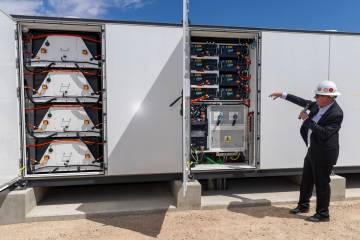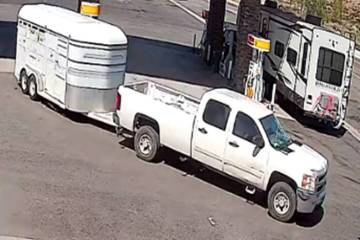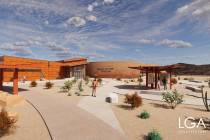Washington Digest: Congress approves five-year transportation bill
WASHINGTON — Congress approved a five-year transportation bill last week, ending a decade of stopgap funding extensions that had frustrated long-term road, bridge and transit planning across the country.
The legislation authorizes $305 billion over the next five years for surface transportation projects, increasing highway spending by 15 percent and transit spending by 18 percent during that period. It also renews the Export-Import Bank, whose charter expired in June.
The Conference of Mayors hailed passage of the long-term bill, saying it provides local leaders with more certainty and resources to move forward with critically needed transportation projects.
Sen. Barbara Boxer, D-Calif., a key negotiator on the final bill, said getting to a long-term agreement was a major accomplishment that should bring dividends to the national economy.
"You are not going to build a major road if you are worried about the funding. What we have done is extraordinary," she said. "I predict that this bill is going to give the economy a real boost — I really mean it — because of the certainty it is bringing and because of the fact that millions of jobs will be created."
Republicans and Democrats in Congress have struggled to reach agreement on how to replenish the Highway Trust Fund, which relies on an 18.4-cents-per-gallon fuel tax for its revenue. That tax source, last increased in 1993, has left the trust about $10 billion short each year. In the past decade, Congress has turned to the general fund to make up the difference as it approved short-term extensions of the highway bill lasting no more than two years.
The House and Senate were able to reach a deal this year on the bill that leaves the fuel tax unchanged and relies instead on other financing mechanisms to keep the fund afloat. The funding issue prompted some conservative Republicans to oppose the bill, contending it relied on gimmicks. Two Senate Democrats also voted against the highway bill.
Sen. Mike Lee, R-Utah, argued against the bill, saying it relies on "irresponsible and unsustainable funding mechanisms" and noting that more than $50 billion of the $70 billion used to bail out the highway fund over the next five years comes from an accounting gimmick that "steals money" from the Treasury's general fund.
"The math may add up on paper, but does anyone really think the pay-fors in this bill are honest, responsible ways to fund a government program?" he asked.
Some Republicans also opposed renewing the Export-Import Bank. The Ex-Im bank makes and guarantees loans to help foreign customers buy U.S. exports. The U.S. Chamber of Commerce and other business groups said it is needed for global competitiveness. Some conservatives oppose it as "crony capitalism."
The bill passed the House, 359-65, and the Senate, 83-16.
Sens. Dean Heller, R-Nev., and Harry Reid, D-Nev., voted in favor. Reps. Cresent Hardy and Joe Heck, both R-Nev., and Dina Titus, D-Nev., also supported it. Rep. Mark Amodei, R-Nev., voted in opposition.
Obamacare repeal
Senate Republicans pushed through legislation to kill the Affordable Care Act and defund Planned Parenthood, achieving a long-term GOP goal to send to President Barack Obama's desk a repeal of his signature health care law. The bill, however, will draw a veto, making the exercise symbolic.
While acknowledging that Obamacare will remain in place, repeal supporters argued that the presidential veto would help solidify support for a Republican to be elected president in 2016.
"If this vote occurred after the next presidential election, instead of vetoing it, the president would sign it. This would force a bipartisan re-evaluation of health care in America and put us in a position to make major changes," said Sen. Jeff Sessions, R-Ala.
The bill passed, 52-47. Heller supported it. Reid voted against repeal.
Gun control
Senate Democrats, meanwhile, used the same budget bill to compel Republicans to vote on gun violence measures in the wake of recent mass shootings in Colorado and California.
In particular, they proposed an amendment to prohibit the sale of guns to individuals on terrorist watch lists. It was rejected, 54-45.
"The American people want us to act on gun violence. Sadly today Republicans have proven that they are more afraid of the National Rifle Association than of FBI terror suspects buying assault weapons and explosives like those used in the Paris attacks and recent shootings in the United States," Reid said.
Reid voted for the measure. Heller opposed it.
No Child Left Behind
The House approved sweeping reforms to No Child Left Behind, a 2001 law that has expanded the federal role in public education.
No Child Left Behind was meant to improve student performance in math and reading by holding schools accountable. The emphasis on standardized testing and punishing schools that failed to show improvement drew strong criticism from educators and parents alike.
The overhaul, which passed 359-64, would dispense with federally prescribed goals and punishments. Instead, states and school districts would be able to set their own goals, decide how to rate their own schools, and come up with their own plans for schools that underperform.
Amodei, Hardy, Heck and Titus voted in favor.
Contact Peter Urban at purban@reviewjournal.com or at 202-783-1760. Find him on Twitter: @PUrbanDC.




























